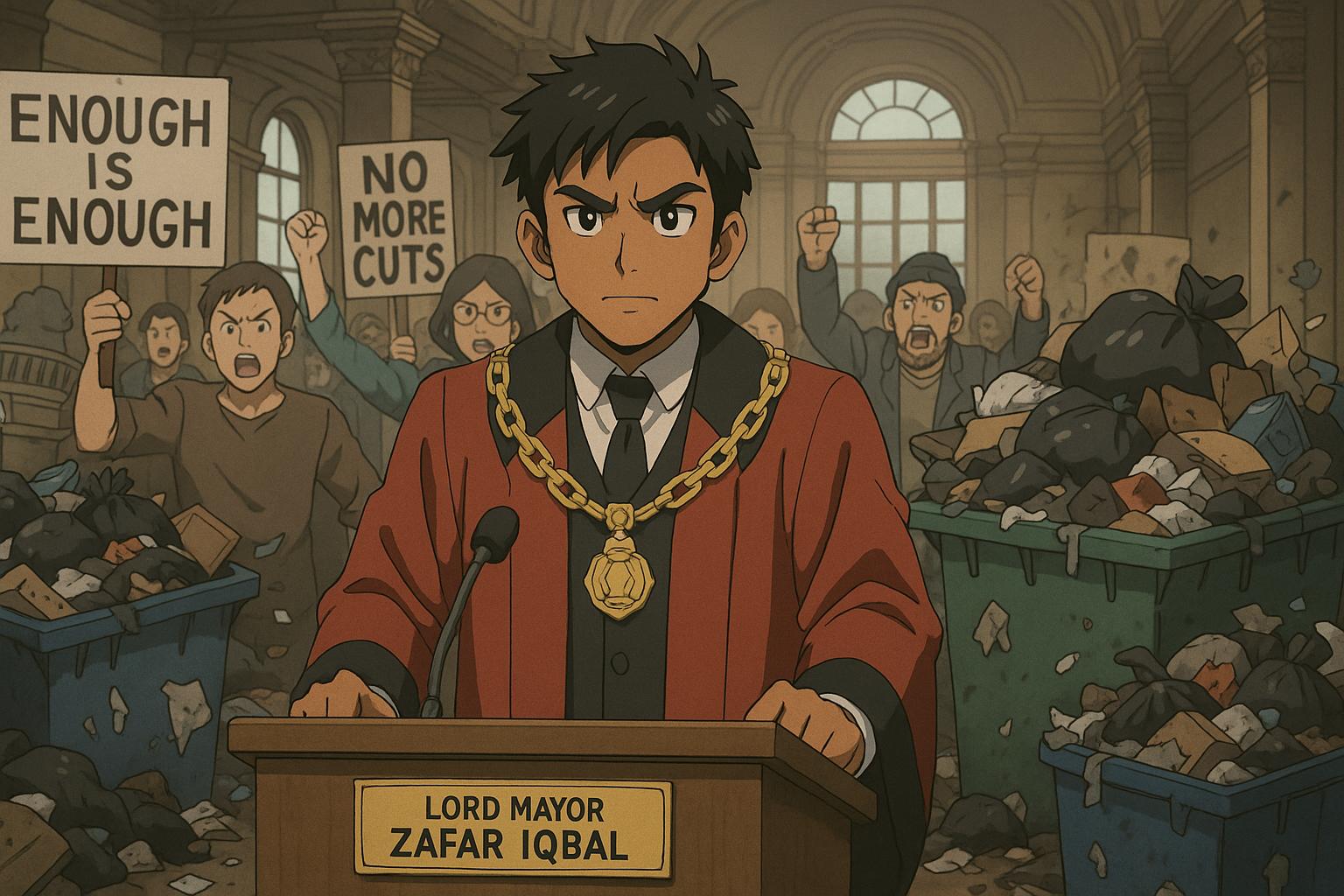The recent election of Birmingham’s new Lord Mayor, Zafar Iqbal, took on a dramatic tone when the ceremony was interrupted by protestors advocating for striking bin workers. Iqbal, a councillor representing the Tyseley and Hay Mills ward, was formally elected to this politically neutral yet pivotal role during a lively meeting held on May 20. His responsibilities include not only representing the community at formal events but also supporting local charities and chairing council meetings at this time of civic unrest.
The celebration was marred by the shouts of demonstrators from the public gallery. These protests were rooted in the ongoing bin strikes that have gripped the city since January 2025, driven by members of the Unite union. The dispute escalated after Birmingham City Council announced plans to eliminate the Waste Recycling and Collection Officer (WRCO) role, a move that union representatives argue would reduce worker salaries to levels barely above the minimum wage. Despite the significant public discontent and mounting pressure, the council insists it has made a "fair and reasonable offer" to its workers.
As tensions reached a peak during the mayoral ceremony, an audience member shouted critically at the council leader, John Cotton, igniting a cacophony of dissent within the chamber. Former Lord Mayor Ken Wood, who was presiding over the event, attempted to restore order, instructing protestors to quiet down or to leave. As Iqbal was named Lord Mayor, claps from councillors rang out amidst the protests, indicating a strong division between the council and the disgruntled citizens.
In his inaugural remarks, Mayor Iqbal expressed a connection to Birmingham that has thrived for over 50 years, stating, “It is the most amazing place in the world, attracting people like me from every corner of the globe and turning them into Brummies.” He vowed to promote the city and its diverse neighbourhoods and aimed to inspire the next generation of leaders throughout his term.
The bin strikes, however, have continued to cast a long shadow over Birmingham, with concerns that they have resulted in unsanitary conditions across the city. Reports indicate that nearly 17,000 tonnes of uncollected rubbish have amassed, leading to widespread public health hazards and growing frustration among residents. In March 2025, Councillor Majid Mahmood resigned from the authority after alleging intimidation on the picket lines, highlighting an environment of escalating tension surrounding the strikes.
Residents voiced that the accumulation of waste has left Birmingham resembling a 'third world city,' and there have been calls for the resignation of city councillors due to inadequate responses to the crisis. With rodents and public health risks becoming pressing issues, the city council officially declared a major incident in response to the worsening situation. As cleanup efforts began, the mayor’s office faces intensifying scrutiny over not only the strikes but its overall governance.
Against this backdrop, Mayor Iqbal’s leadership will be challenged in navigating the delicate balance between community needs and council responsibilities. As he takes office in such turbulent times, there is a significant expectation for proactive measures that will address the immediate concerns of the striking workers while ensuring that Birmingham remains a vibrant community for all residents.
Reference Map
Source: Noah Wire Services
